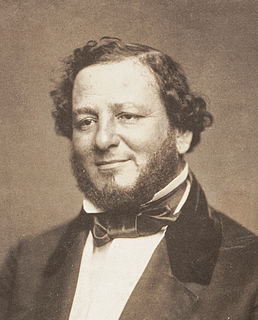A Quote by Boots Riley
If you tell a story that's only allegory, then it doesn't help you at all. If it doesn't bring some emotional charge, then it's just talking about something.
Related Quotes
If you look only as Genesis as an allegory, you have a major problem, because if it's an allegory, then tell me who our ancestor was? If Abraham was real, then from Abraham if Adam isn't real, if it's just an allegory, it's just a story, then what's the real Adam who really fell in a garden and really sinned? Where did we come from?
Sometimes the music just has to tell the story without you trying to tell the story. It depends on the type of music you want to make. If it makes you feel good and party then you go with that. If it makes you feel like speaking on something real and doing a story then it's the beat just has to have the story.
Now, if the book of Genesis is an allegory, then sin is an allegory, the Fall is an allegory and the need for a Savior is an allegory - but if we are all descendants of an allegory, where does that leave us? It destroys the foundation of all Christian doctrine-it destroys the foundation of the gospel.
I only try to talk to people about things I really do use in my shot. If I see something similar and something that will help them, then you try to come to them and say, 'I think I might have something for you. Think about it if you like it.' If they do, and they want to keep talking about it, then I will.
Sometimes there's a lot of tangents because I forget what I'm going to say so much. Sometimes there's very little tangents and stuff for some reason, and then some nights it's all tangents and I can't find my way, and then sometimes I wind up just talking about something completely extemporaneously and then never mention it again ever. It's just completely different.
One of the things that I was kind of holding on to from 'The Daily Show' was there was an exhaustion that I would feel because we just kind of got caught up in the news cycle. You tell a story, and that's an interesting story, and then the next day we have to drop it and talk about something else. That's so unfair to the story and the people.
The trick to making a story matter is that every now and then, somebody you care about has to go. If it's somebody that you don't care about, then it doesn't really have - the stakes aren't there. But if you do that every now and then, then the story matters to people. And there are actual stakes involved, emotional stakes.
For example, in Paris, if one desires to buy something, you enter the store and say "Good morning, sir" or "madam," depending on what is appropriate, you wait until you are greeted, you make polite chitchat about the weather or some such, and when the salesperson asks what they can do for you, then and only then do you bring up the vulgar business of the transaction you require.
Experimental novels are sometimes terribly clever and very seldom read. But the story that appeals to the child sitting on your knee is the one that satisfies the curiosity we all have about what happened then, and then, and then. This is the final restriction put on the technique of telling a story. A basic thing called story is built into the human condition. It's what we are; it's something to which we react.



































